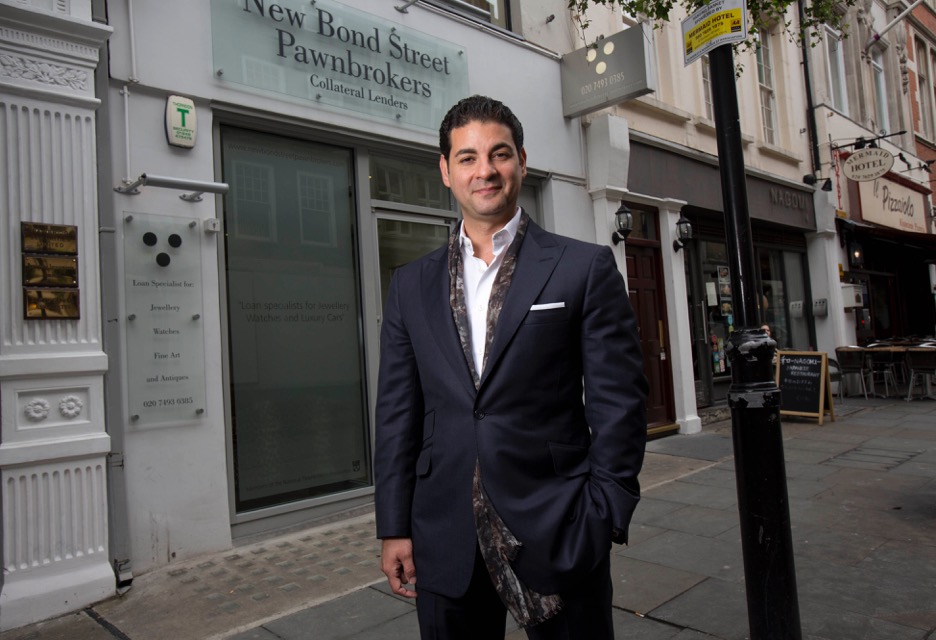Being an entrepreneur with a brand new idea is both exciting and terrifying, and both of these reactions relate to one simple fact; nobody has ever done your idea before. On the one hand, you’ve got a fresh, untapped idea just waiting to have its potential realised. On the other, you’re sailing without a map; you’re the first to try this particular idea, so it’s on you to figure out how to make it work.
I’ve been through this myself, when I decided to set up a pawnbroker in London’s West End that would exclusively deal with assets at the very top end of the market. It was not always easy, but after a few difficult years we established the business, and today it is a successful part of the West End luxury market. Here is how we did it, and what others can learn from our story.
Make sure there’s a gap in the market, and exploit it
As an entrepreneur, I have ideas all the time. It’s human nature to assume that all those ideas are original, but I can’t tell you how many times I’ve had a great idea only to realise someone else got there first. In 1998, I realised that my idea for a pawn shop in London that dealt exclusively with clients looking to loan against high-end items was an original one. Nobody else was doing it. I also knew from my contacts within the local industry that there would be a market for this service in Mayfair.
Two decades later my shop attracts clients from around the globe, seeking valuations and loans against their luxury assets. Making sure there is actually a gap in the market before starting your business can be the difference between success, and falling at an early hurdle.
Stick to what you know
When you’ve got your idea, make sure you’re sticking to what you know. Ideally, it should be in a sector that you have some experience working in. If you don’t have any experience, either take a job in that industry for a couple of years to learn about it and make contacts, or bring someone in as a business partner or employee that can help you with this side of things. Industry knowledge will help you iron out any issues with your idea before you go into business, something you ideally don’t want to have to do as you go.
For me, starting a business in the luxury goods market always made sense. I have spent most of my professional life working in the Mayfair luxury goods market, surrounded by the area’s art galleries and high-end auction houses, which are some of the greatest in Europe. It was here that I honed my luxury goods expertise, and it is precisely this kind of experience that allowed me to come up with the idea for my business.
Make your idea a reality
The biggest, and most difficult step, is taking the leap and starting your new business. To get anywhere, you first have to quit dreaming and start working on making your idea exist in reality. After thinking over the idea for a number of years, in the late 90s I was ready to take the plunge. I set up New Bond Street Pawnbrokers on Blenheim Street, right in the heart of Mayfair. This might seem like a small step, but if you don’t take it, you won’t get anywhere.
Stick to the vision
Once you’ve set your business up, the most important thing is to make sure you don’t stray from your idea, even when it may be tempting to do just that. When I first started the business, a pawnbroker for high-end assets was a very alien concept to many people who owned those assets. Many had never visited a pawnbroker before, and if they had, they certainly hadn’t visited one specialising in luxury goods. In the first year, we struggled. We didn’t get as many clients walking through the door as we would have liked, and we ended up turning away a lot of business from the lower end of the market to keep the vision alive.
As an entrepreneur, it was difficult for me to turn away business, and if you’re reading this I am sure you’ll be similar yourself. However, in my view it was necessary in order to keep the idea intact. If I hadn’t done that, we’d have run the risk of becoming just another high street pawnbroker. There’s nothing wrong with that, of course, but the entire reason I’d opened a pawnbroker in the first place was to cater to a specific, niche market. Don’t be afraid of taking difficult decisions that are necessary in order to stick to your vision. It’s tough at the time, but later down the line when your business is successful, you’ll be glad you saw it through.
It won’t be plain sailing, so stay positive
Whenever you set up any new business, you have to embrace that it won’t be plain sailing at all times. In all my years of business, I’m yet to meet a self-made business owner that has had an easy ride to where they are today. While I’m sure it has happened, it is the exception rather than the rule. The early days when we were turning down business were an especially difficult time, but you just have to accept that things can get difficult in business and keep moving forward. A positive mindset is key and, combined with an unwavering faith in your vision, will get you through even the darkest days. A good exercise routine can really help with this; there’s nothing like a session at the gym to channel all of your work frustrations in a positive and healthy way.
By doing each of these things, by the time the business was well established in the early noughties, we had done something that we had hoped could be possible; we had altered the landscape of the luxury goods market in London. In 2017, the idea of pawning a luxury item is no longer such an alien concept to Mayfair clientele. We started offering something that nobody else was, and changed the market in London as a result. If you stick to each of these simple pieces of advice, there’s no reason you can’t make your innovative idea a success. Good luck!
David Sonnenthal is the founder of New Bond Street Pawnbrokers.





